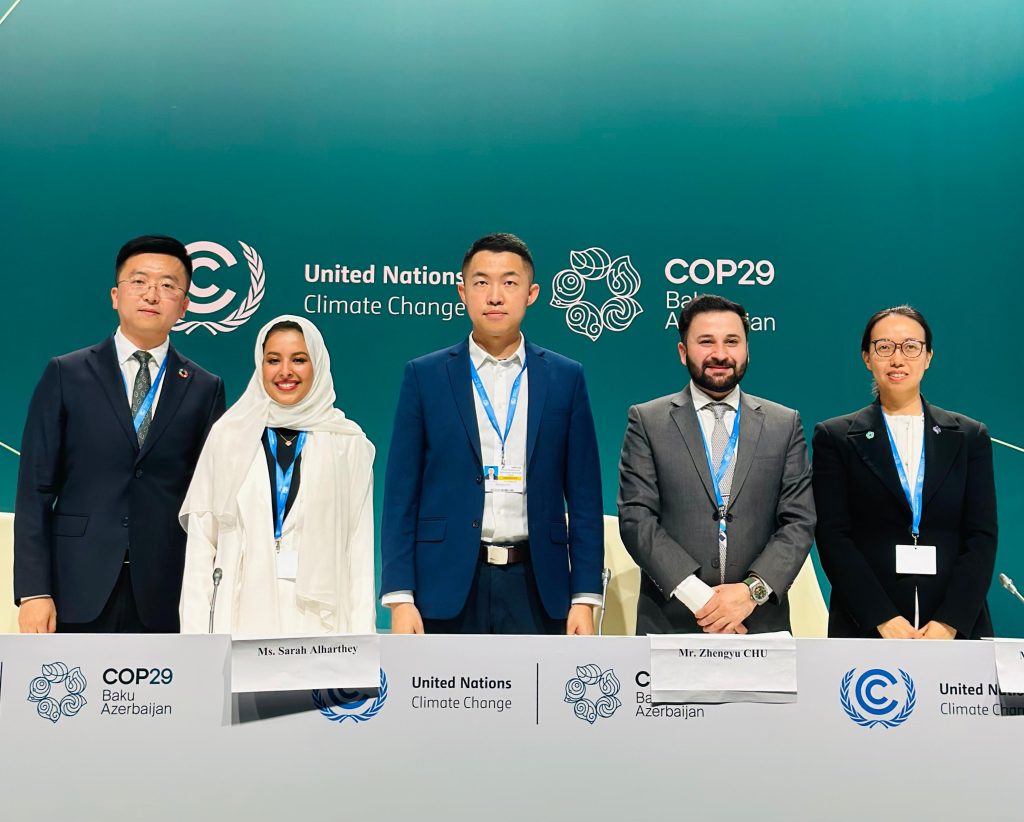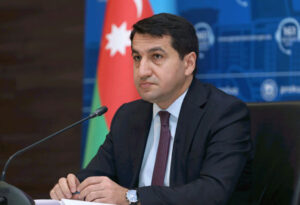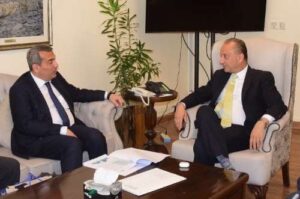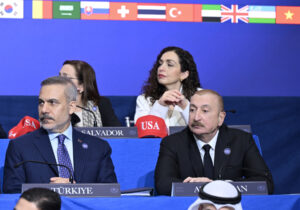United Nations COP29 Press Conference Highlights AI’s Role in Renewable Energy

Baku, The Gulf Observer: The United Nations COP29 featured a high-profile press conference on “AI Empowerment and Digital Innovation in Renewable Energy”. Held at the COP29 Blue Zone, the event brought together global leaders to discuss the transformative potential of Artificial Intelligence (AI) in advancing renewable energy solutions.
Prominent speakers included Zhengyu Chu, CEO of Circue Energy; Yubo Zhai, General Manager of Sustainability at NaaS Technology; Dr. Wang Xue, Co-founder of Botree Recycling Technologies; Selina Wang of Alibaba Cloud International; Sarah Alharthey, Executive Business Development Manager at ACWA Power; and Qaiser Nawab, President of the Belt and Road Initiative for Sustainable Development (BRISD).
The press conference emphasized the integration of AI in renewable energy to tackle pressing global challenges like energy efficiency, sustainability, and carbon neutrality. Leaders shared insights on how AI technologies can drive smarter energy systems, optimize resource management, and accelerate the transition to a low-carbon future.
Key Highlights
- AI for Energy Optimization: Speakers outlined AI’s role in enhancing energy forecasting, enabling seamless integration of renewable resources like wind and solar into power grids.
- Smart Grids and Maintenance: AI-powered grids and systems were presented as solutions for real-time energy management, cost reduction, and system reliability.
- Global Collaboration: The launch of the Artificial Intelligence Technology for New Energy Development Initiative underscored the importance of partnerships among researchers, industry experts, and policymakers to drive innovation.
Qaiser Nawab’s Contribution
Qaiser Nawab, President of BRISD, highlighted the critical intersection of AI and renewable energy in achieving global climate goals. In his keynote, he stated:
“AI is not just a tool; it is a transformative force enabling us to maximize the efficiency of renewable energy systems while addressing the urgent challenges posed by climate change. This integration is key to a sustainable and equitable energy future.”
Nawab further emphasized the role of collaborative frameworks in bridging gaps between technology and policy to ensure that renewable energy becomes more accessible and reliable globally.
The event marked a pivotal step in leveraging AI to revolutionize renewable energy systems and reaffirmed the United Nations’ commitment to advancing global sustainability efforts.


